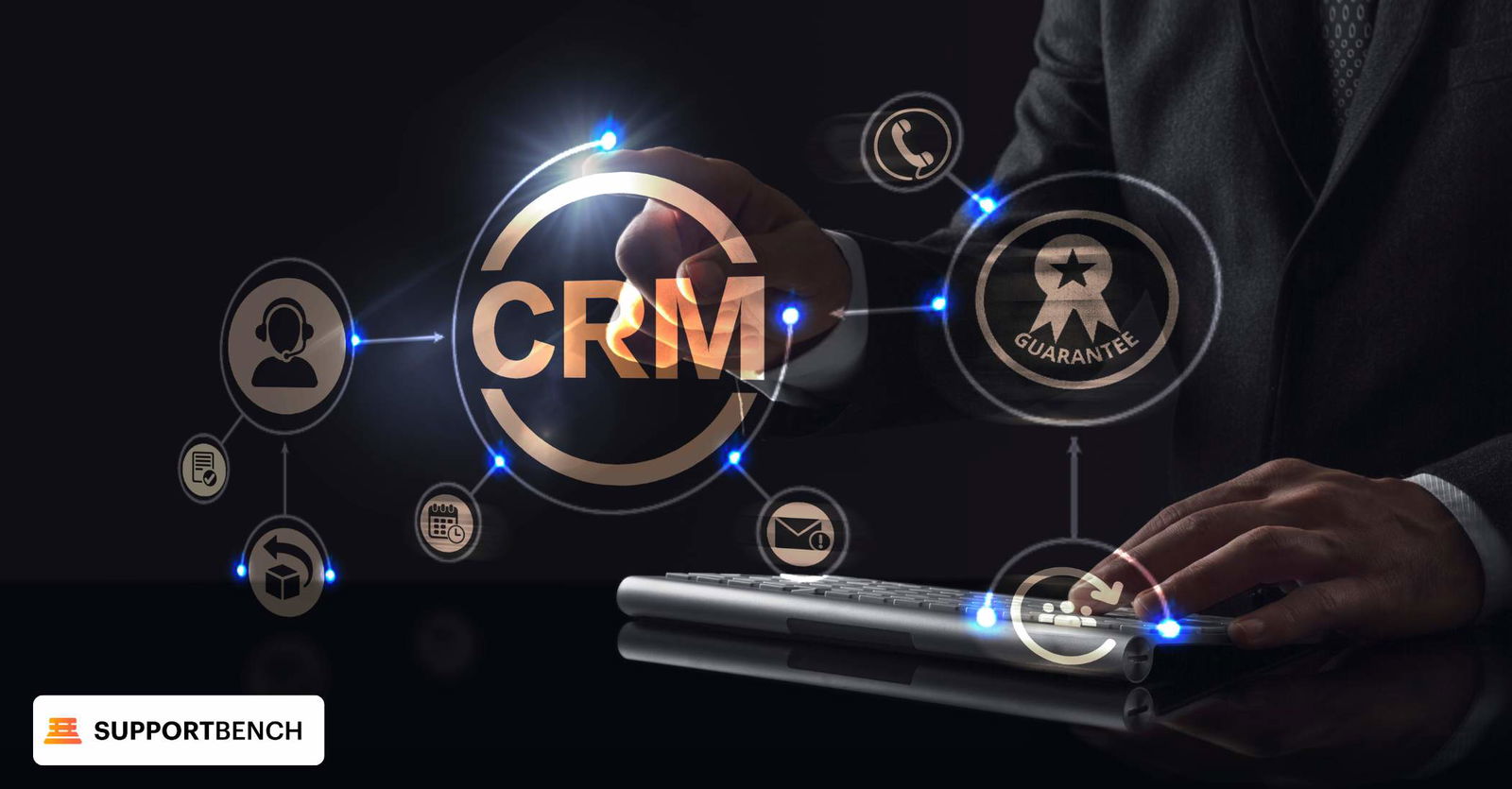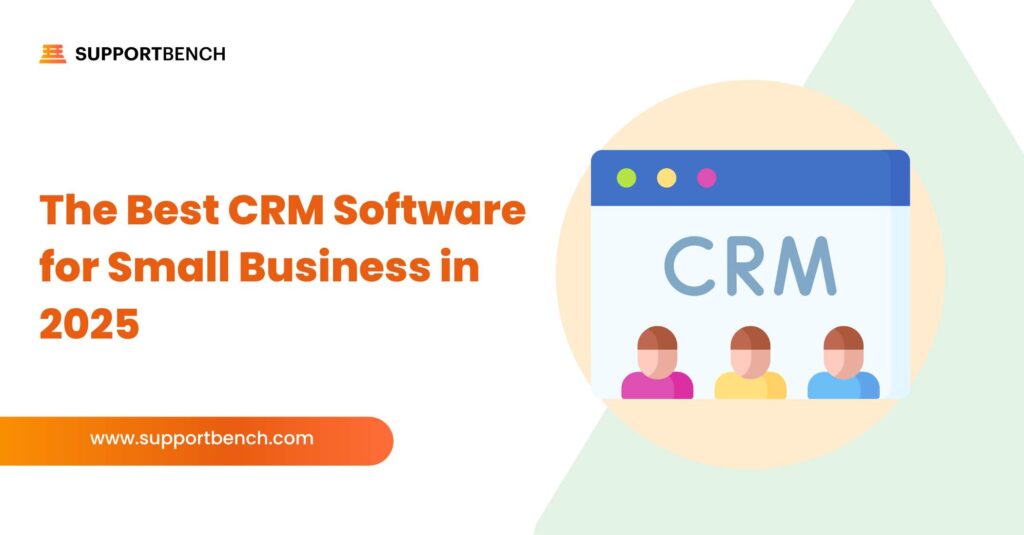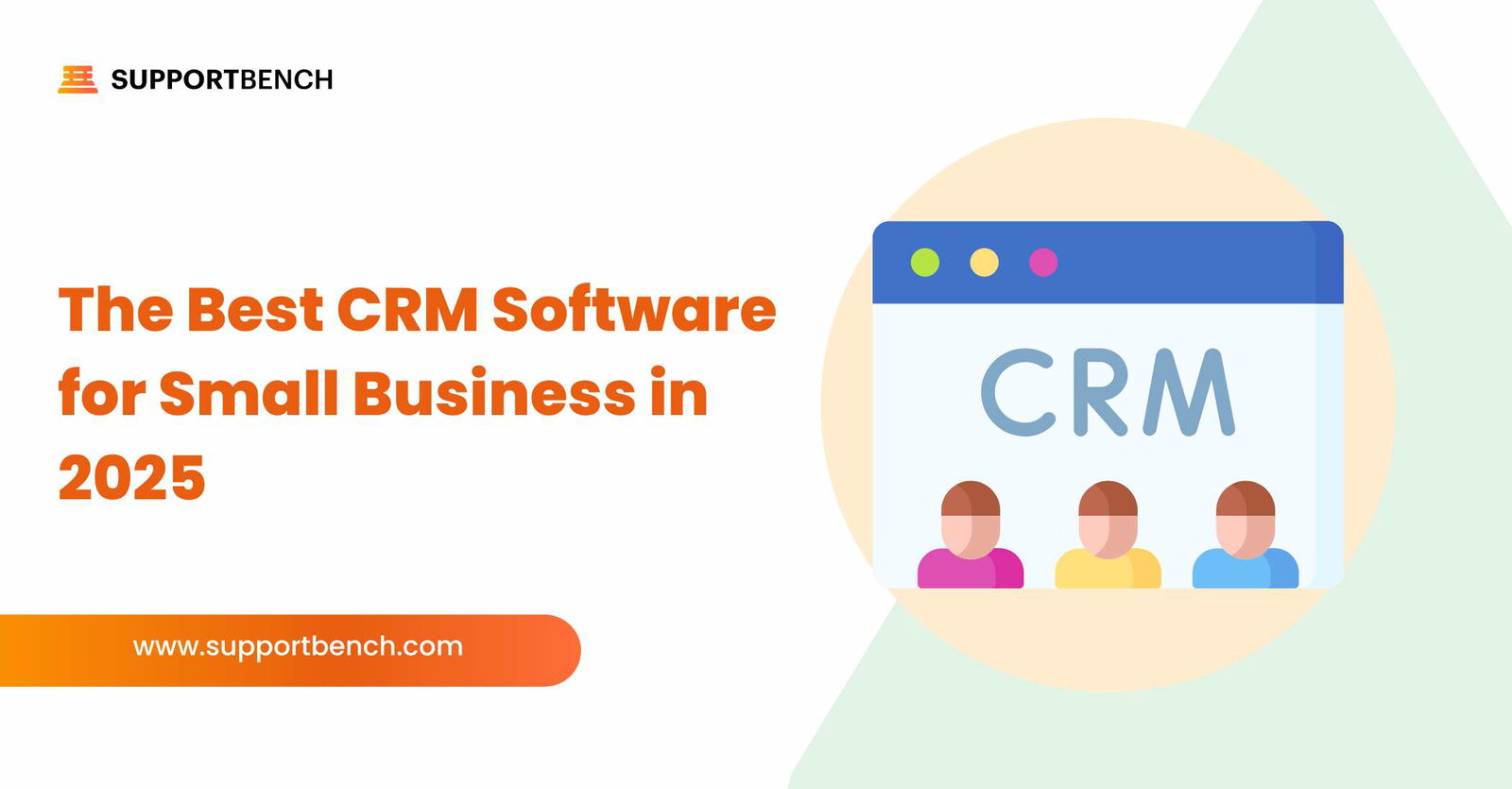In today’s competitive small business landscape, effective customer relationship management is crucial. With limited resources and growing expectations, CRM systems offer tools to streamline operations, improve customer interactions, and support growth.
A well-chosen CRM can revolutionize small business operations by providing lead management, sales automation, and detailed analytics tailored to unique needs. As 2025 approaches, the market is rich with CRM solutions designed specifically for small businesses.
This blog explores why CRMs are vital for small businesses, reviews the top CRM options for 2025, and shares tips for selecting the ideal CRM for your industry.
Why do small businesses need a CRM?
CRM systems are essential for small businesses to streamline customer interactions, manage data effectively, and support growth. With limited resources, small businesses must maximize every interaction to stay competitive.
A CRM centralizes customer information, automates repetitive tasks, and delivers valuable insights to guide strategic decisions. By improving efficiency and fostering stronger relationships, CRMs empower small businesses to scale operations and thrive in competitive markets.

Top CRM Tools for 2025
Selecting the right CRM is essential for small businesses aiming to streamline operations, enhance customer relationships, and drive growth. Below is a detailed comparison of the top CRM tools for 2025, highlighting their unique features, benefits, and ideal use cases.
Supportbench
Supportbench is tailored for small to medium-sized businesses, offering robust tools for managing customer interactions, support tickets, and service requests.
Key Features
- Data-Driven Insights: Real-time dashboards and AI-driven reports offer valuable customer behavior insights.
- Scalability: Flexible pricing plans and features adapt to business growth.
- Integration: Seamless compatibility with tools like email marketing platforms and accounting software.
Use Case
A small tech startup used Supportbench to enhance customer service efficiency. Advanced ticketing and AI insights reduced response times and boosted satisfaction scores.
Pros
- Exceptional customer support.
- Highly customizable to business needs.
- Affordable pricing.
Cons
- Setup requires time and training.
- Limited third-party integrations compared to larger competitors.
HubSpot CRM
A user-friendly CRM, HubSpot is especially attractive for small businesses with its free tier and comprehensive features for sales, marketing, and customer service.
Key Features
- Ease of Use: Intuitive design ensures minimal learning curve.
- Integration: Syncs effortlessly with HubSpot’s suite and other third-party tools.
- Scalability: Robust free version; paid plans add advanced features.
Use Case
A digital marketing agency leveraged HubSpot CRM to generate 80 new monthly leads, achieving a 1.7X increase in sales as a HubSpot Partner.
Pros
- Free version with solid features.
- Simple setup and usage.
- Comprehensive marketing tools.
Cons
- Limited customization in the free version.
- Advanced features can be costly.
Zoho CRM
An affordable, feature-rich CRM designed for small and medium-sized businesses, Zoho excels in sales, marketing, and customer support.
Key Features
- Customizability: Tailored workflows and modules.
- AI Insights: Zia AI assistant provides analytics and sales predictions.
- Mobile App: Reliable access on the go.
Use Case
A retail business boosted sales efficiency by 15–25% using Zoho CRM’s customizable features, enhancing both process flow and customer satisfaction.
Pros
- Budget-friendly.
- Highly customizable.
- Excellent mobile app.
Cons
- Steeper learning curve.
- Occasional delays in customer support.
Salesforce Essentials
A streamlined version of Salesforce, Essentials caters to small businesses with its simplified yet powerful features.
Key Features
- Salesforce Ecosystem: Access to extensive apps and integrations.
- User-Friendly Interface: Simplified navigation for small business users.
- Scalability: Designed to grow with business needs.
Use Case
A consulting firm enhanced client management and project tracking using Salesforce Essentials’ robust integrations and customizability.
Pros
- Backed by Salesforce’s reputation and ecosystem.
- Scalable and flexible.
- Wide range of integrations.
Cons
- Higher costs compared to other small business CRMs.
- Setup may require technical expertise.

Trends in CRM Software for Small Businesses in 2025
As technology advances, CRM systems are evolving to meet the unique needs of small businesses. Here are the key trends shaping the CRM landscape in 2025:
- AI and Machine Learning: AI in CRMs provides predictive analytics, automates tasks, and personalizes customer experiences, enabling smarter, data-driven decisions.
- Mobile CRM: Mobile-friendly systems let teams access customer data and complete tasks seamlessly from anywhere, ideal for remote or on-the-go operations.
- Integration with Other Tools: CRMs now integrate effortlessly with business tools like email marketing, accounting software, and support platforms, creating unified workflows.
- User Experience: Simplified setups and intuitive designs ensure quick adoption, making CRMs easy for small businesses to learn and use effectively.
- Customization: Flexible features allow CRMs to adapt to industry-specific needs, ensuring businesses can scale and evolve without outgrowing their tools.
By embracing these trends, small businesses can leverage CRMs to drive efficiency, improve customer interactions, and support growth in an increasingly competitive market.
Tips for Selecting the Right CRM for Your Industry
Choosing the right CRM software can feel overwhelming, but these tips can help you make the best decision for your business needs:
Understand Your Business Needs
Start by pinpointing your specific challenges. Are you looking to streamline lead management, improve customer service, or track sales more effectively? Understanding these priorities helps you identify CRMs with features that match your goals.

Evaluate Industry-Specific Features
Each industry has unique requirements. For instance, real estate businesses may need robust property management tools, while e-commerce businesses often benefit from inventory integration. Choose a CRM that aligns with your industry’s specific operations.
Scalability and Flexibility
Ensure your CRM can grow with your business. Opt for solutions with flexible pricing plans and the ability to add users and features over time, avoiding the need to switch systems later.
Integration Capabilities
A CRM that connects seamlessly with your existing tools, like email marketing software or accounting platforms, ensures smoother workflows and better efficiency.
Ease of Use
A user-friendly interface is essential for adoption. If a CRM is too complex, your team may struggle to use it effectively. Look for solutions with simple setup processes and accessible training materials.
Data Security
Protect sensitive customer data by selecting a CRM with robust security measures, including encryption, regular backups, and compliance with regulations like GDPR or CCPA.
Cost and ROI
Consider both affordability and the potential return on investment. A slightly higher upfront cost may be worth it if the CRM delivers increased sales, improved customer satisfaction, or greater efficiency over time.
Conclusion
Selecting the right CRM in 2025 can be a game-changer for the success and growth of your small business. With numerous options available, it’s crucial to choose a solution that aligns with your budget, integrates smoothly with your current tools, and adapts to your evolving business needs.
Top CRM platforms like Supportbench, HubSpot, Zoho, and Salesforce Essentials offer tailored features that empower small businesses to manage customer relationships efficiently and drive productivity.
Among these, Supportbench stands out with its focus on data-driven insights, affordability, and an intuitive interface. It’s an ideal choice for small businesses aiming to enhance customer service and achieve sustainable growth.
Investing in the right CRM will ensure you stay competitive, streamline operations, and build stronger connections with your customers. Make 2025 the year your business thrives with the support of a powerful CRM.












